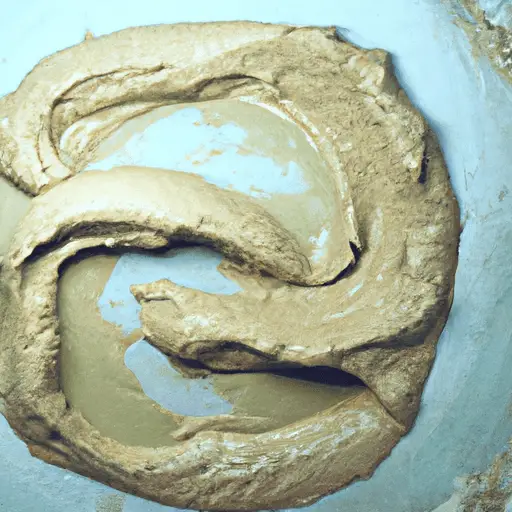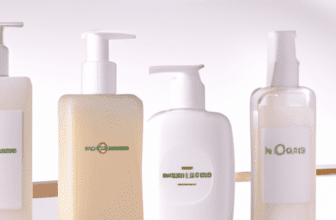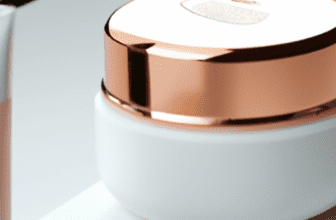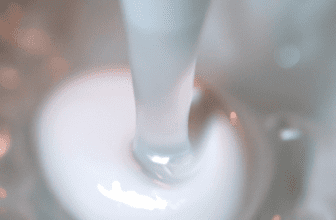Clay Masks: Detoxifying and Purifying the Skin
-
Table of Contents
“Clay Masks: Unleashing Purity and Detoxification for Radiant Skin!”
Clay masks are a popular skincare product known for their detoxifying and purifying properties. They are made from specific types of clay, such as kaolin or bentonite, which have the ability to absorb excess oil, remove impurities, and draw out toxins from the skin. These masks are particularly beneficial for those with oily or acne-prone skin, as they can help to clear pores and reduce inflammation. However, they can also be used by those with normal to dry skin types, as many clay masks also have hydrating and soothing ingredients. Overall, clay masks are a versatile skincare product that can help to improve the health and appearance of the skin.
Unveiling the Power of Clay Masks for Deep Cleansing
Clay masks have been a staple in beauty regimens around the world for centuries. Known for their ability to draw out impurities and toxins, these masks are a natural, effective way to detoxify and purify the skin. The power of clay masks lies in their unique properties, which allow them to absorb excess oil, remove dead skin cells, and unclog pores, resulting in a deep cleanse that leaves the skin looking fresh and radiant.
Clay masks are made from a variety of clays, each with its own unique set of benefits. Bentonite clay, for example, is known for its ability to absorb and remove toxins, heavy metals, and impurities. It’s also rich in minerals like calcium, magnesium, and iron, which can nourish the skin. Kaolin clay, on the other hand, is ideal for sensitive skin due to its gentle cleansing and exfoliating properties. It can help to soothe irritation and reduce inflammation, making it a popular choice for those with skin conditions like acne or rosacea.
The detoxifying power of clay masks is due to the negative charge of the clay particles, which attracts positively charged toxins and impurities. When applied to the skin, the clay acts like a magnet, drawing these impurities out of the pores and onto the surface of the mask. As the mask dries, it tightens on the skin, helping to stimulate blood flow and promote the healing and regeneration of skin cells. Once the mask is removed, the skin is left clean, refreshed, and revitalized.
In addition to their deep cleansing properties, clay masks also offer a range of other benefits for the skin. They can help to balance oil production, reducing the likelihood of breakouts and leaving the skin with a healthy, matte finish. They can also help to improve the texture and tone of the skin, reducing the appearance of pores and fine lines and leaving the skin smooth and soft to the touch. Furthermore, because they are rich in minerals, clay masks can provide a nourishing boost to the skin, replenishing essential nutrients and promoting a healthy, youthful glow.
Despite their powerful detoxifying properties, clay masks are gentle enough to be used on all skin types. However, it’s important to choose a mask that is suited to your specific skin needs. For example, those with oily or acne-prone skin may benefit from a mask containing bentonite or French green clay, which are known for their oil-absorbing properties. Those with dry or sensitive skin, on the other hand, may prefer a mask containing kaolin or rose clay, which are gentler and less drying.
In conclusion, clay masks offer a natural, effective way to detoxify and purify the skin. Their unique properties allow them to draw out impurities, absorb excess oil, and promote the healing and regeneration of skin cells. Whether you’re looking to deep cleanse your skin, balance oil production, or simply give your skin a nourishing boost, a clay mask could be the perfect addition to your skincare routine. So why not unveil the power of clay masks for yourself and experience the benefits of this ancient beauty secret?
The Ultimate Guide to Detoxifying Your Skin with Clay Masks

Clay masks have been a staple in beauty regimens around the world for centuries. Known for their ability to draw out impurities and toxins, these masks are a natural, effective way to detoxify and purify the skin. This article will serve as your ultimate guide to understanding the benefits of clay masks and how to incorporate them into your skincare routine.
Clay masks are made from a variety of clays, each with its unique properties. Bentonite clay, for instance, is highly absorbent and can draw out impurities from deep within the skin. Kaolin clay, on the other hand, is less absorbent and is ideal for sensitive skin. French green clay is known for its ability to tighten pores and stimulate blood flow to the skin. Regardless of the type of clay, all clay masks work by absorbing excess oil and dirt from the skin, leaving it clean and refreshed.
The detoxifying properties of clay masks are due to the negative charge of the clay particles. When applied to the skin, these negatively charged particles attract positively charged particles, such as toxins and impurities, effectively drawing them out of the skin. This process not only cleanses the skin but also improves its texture and appearance. Regular use of clay masks can help reduce the appearance of pores, control oil production, and prevent acne breakouts.
In addition to their detoxifying properties, clay masks also offer a range of other benefits. They can exfoliate the skin by removing dead skin cells, promote blood circulation, and stimulate collagen production, leading to firmer, more youthful-looking skin. Some clays, such as Rhassoul clay, are rich in minerals like silica and magnesium, which can nourish the skin and improve its elasticity.
Despite their numerous benefits, clay masks should be used with caution. Overuse can strip the skin of its natural oils, leading to dryness and irritation. It is recommended to use clay masks once or twice a week, depending on your skin type. Those with oily skin may benefit from more frequent use, while those with dry or sensitive skin should limit their use to once a week.
Applying a clay mask is a simple process. First, cleanse your skin to remove any makeup or dirt. Then, apply a thin layer of the mask to your face, avoiding the eye area. Leave the mask on for about 10-15 minutes, or until it has dried. Rinse off with warm water, and follow up with a moisturizer to replenish any lost moisture.
In conclusion, clay masks are a natural, effective way to detoxify and purify the skin. They offer a range of benefits, from removing impurities and controlling oil production to promoting blood circulation and improving skin elasticity. However, they should be used with caution to avoid over-drying the skin. With the right clay mask and proper usage, you can achieve clean, refreshed, and youthful-looking skin.
Clay Masks: The Secret to Purifying Your Skin
Clay masks have been a staple in beauty regimens around the world for centuries. Known for their ability to draw out impurities and toxins, these masks are a natural, effective way to purify and detoxify the skin. The secret to their efficacy lies in the unique properties of clay, which has been used for its healing and purifying properties since ancient times.
Clay is a naturally occurring substance that is rich in minerals. When applied to the skin, these minerals can help to nourish and rejuvenate, leaving the skin looking healthier and more radiant. But the benefits of clay masks go beyond mere nourishment. They also have a unique ability to absorb excess oil and dirt from the skin, making them an excellent choice for those with oily or acne-prone skin.
The process of applying a clay mask is simple, but the results can be dramatic. First, the mask is applied to clean, dry skin. As it dries, the clay begins to harden, tightening on the skin. This tightening effect can help to stimulate blood flow and tighten pores, resulting in a smoother, more youthful appearance. Once the mask is fully dry, it is rinsed off, taking with it any impurities that have been drawn out of the skin.
There are several types of clay used in masks, each with its own unique benefits. Bentonite clay, for example, is known for its ability to absorb oil and draw out impurities, making it an excellent choice for those with oily skin. Kaolin clay, on the other hand, is gentler and less drying, making it suitable for those with sensitive or dry skin. French green clay is known for its ability to tighten pores and stimulate blood flow, resulting in a more youthful appearance.
Despite their benefits, clay masks should be used with caution. Because they can be drying, it’s important to follow up with a moisturizer after use. Additionally, they should not be used more than once or twice a week, as overuse can lead to dryness and irritation.
In recent years, clay masks have seen a resurgence in popularity, and for good reason. They offer a natural, effective way to detoxify and purify the skin, leaving it looking healthier and more radiant. Whether you have oily skin, acne-prone skin, or simply want to give your skin a deep cleanse, a clay mask could be the secret to purifying your skin.
In conclusion, clay masks are a versatile and beneficial addition to any skincare routine. Their ability to draw out impurities and absorb excess oil can help to clear up acne and reduce oiliness, while their mineral-rich composition nourishes and rejuvenates the skin. By choosing the right type of clay for your skin type and using it properly, you can enjoy the many benefits that these masks have to offer. So why not give it a try? Your skin will thank you.
Transforming Skincare Treatments: The Role of Clay Masks
Clay masks have been a staple in skincare routines for centuries, offering a multitude of benefits that have been recognized and utilized by various cultures around the world. These masks, derived from natural clay, are renowned for their detoxifying and purifying properties, making them an essential component in transforming skincare treatments.
Clay masks work by drawing out impurities from the skin. As the clay dries on the skin, it starts to harden, tightening the skin and pores. This process helps to remove dirt, oil, and other pollutants that have accumulated on the skin’s surface. The result is a deep cleanse that leaves the skin feeling refreshed and rejuvenated.
Moreover, clay masks are known for their detoxifying properties. They are rich in minerals like silica, magnesium, calcium, and potassium, which are beneficial for the skin. These minerals help to detoxify the skin by binding with toxins and removing them when the mask is washed off. This detoxification process not only cleanses the skin but also improves its overall health and appearance.
In addition to detoxification, clay masks also offer purifying benefits. They have a natural ability to absorb excess oil and sebum from the skin, which can help to prevent acne and breakouts. Furthermore, they can help to balance the skin’s pH levels, which is crucial for maintaining healthy skin. By absorbing excess oil and balancing pH levels, clay masks can help to purify the skin and keep it looking clear and radiant.
Clay masks also play a significant role in exfoliation. The texture of the clay helps to gently remove dead skin cells, revealing a smoother and brighter complexion underneath. This exfoliation process also helps to stimulate blood circulation, which can improve the skin’s overall health and vitality.
Despite their powerful detoxifying and purifying properties, clay masks are gentle enough to be used on all skin types. They are particularly beneficial for those with oily or acne-prone skin, but they can also be used on dry or sensitive skin. The key is to choose a clay mask that is suitable for your specific skin type and needs.
For instance, Bentonite clay is excellent for oily skin as it can absorb large amounts of oil and sebum. On the other hand, Kaolin clay is gentler and is suitable for sensitive or dry skin. French Green clay is known for its toning properties and is ideal for mature skin. Regardless of the type of clay, these masks can provide a deep cleanse that is difficult to achieve with regular face washes or cleansers.
In conclusion, clay masks are a versatile and effective skincare treatment that can detoxify and purify the skin. They offer a deep cleanse that removes impurities, absorbs excess oil, and balances pH levels. Moreover, they can exfoliate the skin and stimulate blood circulation, improving the skin’s overall health and appearance. Whether you have oily, dry, sensitive, or mature skin, there is a clay mask that can cater to your specific needs and help transform your skincare routine.
Exploring the Benefits of Clay Masks in Skincare Regimens
Clay masks have been a staple in skincare regimens for centuries, lauded for their ability to detoxify and purify the skin. These masks, derived from natural clay sources, are rich in minerals that can help to draw out impurities, absorb excess oil, and leave the skin feeling refreshed and revitalized.
The detoxifying properties of clay masks are perhaps their most well-known benefit. The clay acts like a magnet, attracting and binding to toxins, dirt, and other impurities that have accumulated on the skin’s surface. As the mask dries, it hardens, trapping these impurities within its structure. When the mask is washed off, these impurities are removed along with it, leaving the skin clean and detoxified. This process can help to unclog pores, reduce the appearance of blackheads, and prevent acne breakouts.
In addition to their detoxifying effects, clay masks are also highly effective at absorbing excess oil from the skin. This makes them particularly beneficial for individuals with oily or combination skin types. The clay works by absorbing the oil, reducing shine, and leaving the skin with a matte finish. This can help to balance the skin’s natural oil production and prevent the clogged pores that can lead to acne.
Clay masks are also known for their purifying properties. They can help to stimulate circulation in the skin, promoting the removal of dead skin cells and encouraging the growth of new, healthy skin cells. This can result in a brighter, more radiant complexion. Furthermore, the minerals found in clay, such as calcium, magnesium, and potassium, can nourish the skin, providing it with essential nutrients that support its health and vitality.
Despite their powerful detoxifying and purifying effects, clay masks are generally gentle on the skin. They can be used by individuals with sensitive skin, and they are less likely to cause irritation or redness than other types of facial masks. However, it’s always important to patch test any new skincare product before applying it to the entire face, to ensure that it doesn’t cause an adverse reaction.
While clay masks can be beneficial for all skin types, it’s important to choose the right type of clay for your specific skin needs. For example, white kaolin clay is gentle and suitable for sensitive skin, while bentonite clay is highly absorbent and ideal for oily skin. Green clay, also known as French green clay, is known for its purifying properties and is suitable for most skin types.
In conclusion, clay masks offer a range of benefits for the skin, from detoxifying and purifying to absorbing excess oil and nourishing with essential minerals. They are a versatile addition to any skincare regimen, suitable for all skin types and capable of addressing a variety of skin concerns. Whether you’re looking to detoxify, purify, or simply give your skin a healthy glow, a clay mask could be just the skincare solution you’re looking for.
Q&A
1. Question: What are the benefits of using a clay mask?
Answer: Clay masks help to detoxify and purify the skin by drawing out impurities, absorbing excess oils, and removing dead skin cells. They can also help to unclog and shrink pores, improve skin texture, and enhance the overall complexion.
2. Question: How often should you use a clay mask?
Answer: It’s generally recommended to use a clay mask once or twice a week. However, the frequency can vary depending on your skin type and specific skin concerns.
3. Question: Can clay masks help with acne?
Answer: Yes, clay masks can help with acne. They can absorb excess sebum, reduce inflammation, and remove bacteria and toxins that contribute to acne.
4. Question: Are there different types of clay masks for different skin types?
Answer: Yes, there are different types of clay masks suitable for different skin types. For example, kaolin clay is gentle and suitable for sensitive skin, bentonite clay is highly absorbent and good for oily skin, and rhassoul clay is nourishing and ideal for dry skin.
5. Question: Can clay masks cause skin dryness?
Answer: Yes, clay masks can cause skin dryness if used excessively or left on the skin for too long. It’s important to follow the usage instructions and moisturize the skin after using a clay mask.In conclusion, clay masks play a significant role in detoxifying and purifying the skin. They are known for their ability to absorb excess oils and dirt from the skin, unclog pores, and eliminate impurities, toxins, and dead skin cells. This results in a smoother, clearer, and healthier complexion. Therefore, incorporating clay masks into a skincare routine can be beneficial for maintaining clean and refreshed skin.





